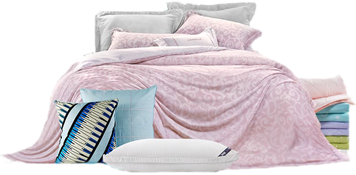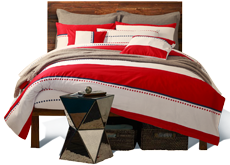- Empty cart.
- Continue Shopping
1. Read the fiber content first.
100% cotton is always an excellent go-to because it’s soft and affordable. If you’re looking for premium, Extra-Long Staple (ELS) cotton, like Egyptian or Pima, is even softer and more durable. The downside is these sheets may be more expensive and you’ll have to trust the company’s word; there have been instances of cotton being mislabeled as Egyptian. You can also opt for cotton/polyester blends. Though the fabric may have a somewhat synthetic feel, the polyester makes it inexpensive, more durable and less prone to wrinkling.
2. Thread count isn’t everything.
Manufacturing techniques can allow brands to make high thread counts without actually increasing quality. Our tests have shown that 300 to 500 is a sweet spot for softness and strength. You can find good 200-thread-count sheets, but they may not be as comfy, and anything over 500 isn’t necessarily better.
3. Know the difference between weaves.
Your primary options are percale or sateen. Percale is a basic, grid-like weave that feels light and crisp. Sateen in a satin weave and feels silky smooth. It’s a matter of personal preference, though in our tests, consumers tend to favor sateen.
4. Don’t assume it’ll fit your mattress.
Standard sizes, like queen or king, don’t account for mattress depth. So if yours is tall or if you use a mattress topper, make sure to measure before you buy. You should also account for some shrinkage after laundering. Generally, fitted sheets that fit up to 15-inch mattresses have performed well in our fit tests.
5. Always check the return policy.
It’s not easy knowing whether you’ll love sleeping on the sheets until you’ve tried them out. Some brands, especially those that have internet-only sales, allow you to make returns for any reason, even up to a few months after the purchase.


